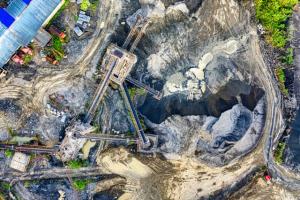
In an important move to secure the supply of essential raw materials, the European Critical Raw Materials Act (CRMA) entered into force on 23 May 2024. This legislation is a cornerstone in enhancing the EU's capabilities in sourcing, processing, and recycling critical raw materials (CRMs), which are crucial for the region's climate objectives and sustainable development.
The CRMA aims to bolster the EU's strategic autonomy by reducing reliance on external suppliers for CRMs. Essential for the production of batteries, renewable energy technologies, and various high-tech applications, these materials include lithium, cobalt, and nickel.
To meet these objectives, the CRMA sets ambitious targets for strategic raw materials for 2030:
-
10% of the EU’s annual consumption for extraction to be sourced domestically.
-
40% of the EU’s annual consumption for processing to occur within the EU.
-
15% of the EU’s annual consumption to come from recycling.
Additionally, the Act mandates that no more than 65% of any strategic raw material should be sourced from a single third country, thereby reducing the risk of supply chain disruptions.
Integration of the UN Framework Classification for Resources
A notable feature of the CRMA is the incorporation of the United Nations Framework Classification for Resources (UNFC), developed at UNECE. This framework is instrumental in standardizing the classification, management, and reporting of mineral resources across the EU, thereby enhancing transparency and efficiency within the CRM sector. UNFC provides a unified language and methodology that supports informed decision-making and robust resource management practices, promoting sustainability and resilience in supply chains.
Supporting circular economy practices with UNFC
UNFC can help advance circular economy practices, which are fundamental to the CRMA. By offering a comprehensive framework for resource management, UNFC ensures the efficient and sustainable use of critical raw materials. The CRMA promotes the recovery of CRMs from waste and the development of secondary markets. The guidelines provided by UNFC support these initiatives by standardizing methods for resource and principle-based project classification that supports management, optimize recycling, and ensure environmentally sound practices.
Promoting international cooperation and sustainability
The CRMA emphasizes the importance of international cooperation to diversify supply sources and foster global sustainable development. The EU intends to establish a Critical Raw Materials Club to collaborate with like-minded countries, ensuring stable and sustainable supply chains. This initiative aligns with broader EU goals under the Green Deal Industrial Plan and the Net Zero Industry Act. By adopting UNFC, the EU facilitates global cooperation through a shared framework classification for resources, enhancing coordination and collaboration in resource management.
The Act’s regulatory text also confirms that the obligations under the UNECE Aarhus Convention on Access to Information, Public Participation in Decision-making and Access to Justice in Environmental Matters, and the Espoo Convention on Environmental Impact Assessment in a Transboundary Context, and its Protocol on Strategic Environmental Assessment, continue to apply in full. Given the Act’s relevance to increased mining processes and tailings facilities, the UNECE Convention on the Transboundary Effects of Industrial Accidents can help ensure safety.

